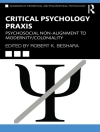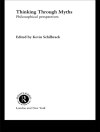These essays by Robert Schwartz on topics in the theory of vision are written from a pragmatic perspective. The issues and arguments will interest both philosophers and psychologists, covering new ground and bridging gaps between these disciplines. Schwartz begins historically, with discussions of problems raised and solutions offered in Bishop Berkeley’s writings on vision, presenting Berkeley’s views on spatial perception and the qualitative aspects of sensory experience in the context of recent theoretical and empirical work in vision theory. Schwartz then turns to debates in both the philosophical and psychological literature over the view that perception is inferential and thus "indirect." Critically surveying competing characterizations of the idea of "inferential processes" he argues the need either to reframe radically the question or drop the issue. Next, Schwartz discusses pictorial representation and research on picture perception. Drawing on the work of Nelson Goodman, Schwartz explains and defends the advantages of a symbolic approach to both topics. Finally, he examines the quagmires that often develop when metaphysical concerns about the "real" and our ability to perceive it infect discussions and claims in the theory of vision. After analyzing issues arising in current psychological research on "object" perception, Schwartz turns to debates over the supposed essential nature of colors. An appreciation of the empirical and theoretical work on color perception suggests that there is no single or privileged analysis of the notion of "real colors." Schwartz circles back in the end to what he calls "that old chestnut of the philosophy of perception"-controversies over "the objects of perception"-and takes an Austinian look at the topic.
Robert Schwartz
Visual Versions [PDF ebook]
Visual Versions [PDF ebook]
Compre este e-book e ganhe mais 1 GRÁTIS!
Língua Inglês ● Formato PDF ● Páginas 256 ● ISBN 9780262283304 ● Editora The Mit Press ● Publicado 2006 ● Carregável 3 vezes ● Moeda EUR ● ID 8105029 ● Proteção contra cópia Adobe DRM
Requer um leitor de ebook capaz de DRM












